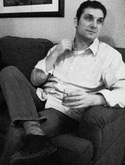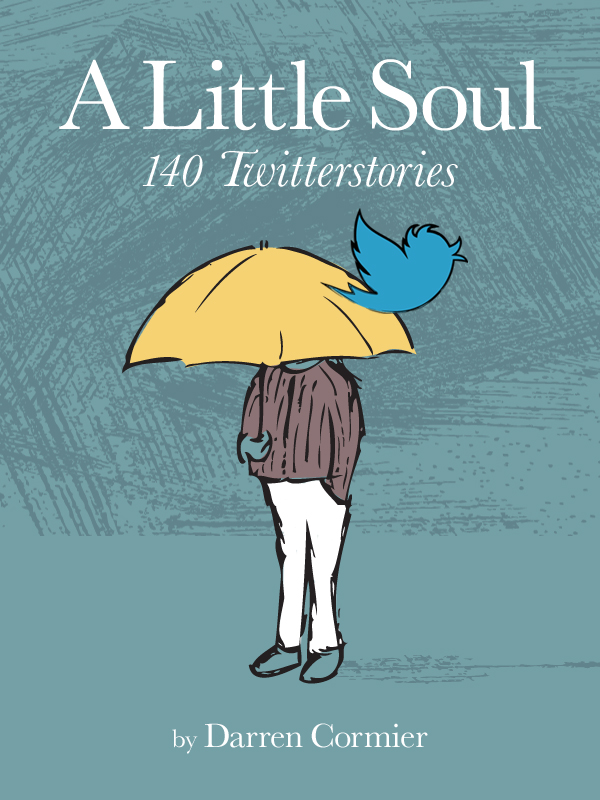For a long time I have wanted to write an essay regarding what goes on through one's head while they are running. The structure of the essay would mirror the patterns of one's thoughts while running: in other words, the essay would be as scattered, fragmented, and stream-of-conscious as the thoughts that pass through one's head during a normal day. I have also for a while now wanted to write a long experimental essay that would take place over the course of time, in which individuals would be free to jump in at any point, an essay that would take into account the concept of time and participation, in which the ending was not written as people are reading it, as it is published. A serial experimental essay. I realized the running essay would be the perfect venue for this type of structure and real-time experiment. Given the recent passing of David Markson, and how his d istinctive latter-day style was equally fragmented, seemingly arbitrary, and random as the firing of synapses in our brains, it seems fitting that I start this now. This essay will be an ode to Markson and will include many of the thoughts that flow through my own head while running. It will be self-reflexive, random, arbitrary; it will include longer sections of research concerning the physiological changes that happens while we run, what chemicals our body releases and how it affects our muscles and our moods; it will contain many grammatical errors as I will be publishing it in real-time. (I will go back and edit each entry, and possibly rearrange the order of each section.) It will also make no sense to anyone who happens to read just one sentence every so often, which, I suppose, is also part of the intent. Overall, the intent of the essay is to show how running and writing are inter-related, to explore their reciprocal, symbiotic relationship: how the activities themselves resemble the stream-of-consciousness style, and how the two can best be described and experienced only during the actual doing of the activity. Both are performed, for the most part, in solitude. (Even with the inclusion of runner's groups or a running partner, or the invention of writers groups, running and writing are ultimately a solitary activities.) A writer is happiest when he is writing, not when the product is finished. A runner is happiest when he is running, not when he sees his time and distance after the run. Also, in an effort at maintaining another continuous project, I will attempt to include at least one new section per day, even if that section is one random sentence. This introduction does not count as a section of the essay. I hope you all enjoy this project. As always, any feedback is well-appreciated. Thank you.
David Markson passed away over the weekend. The official obituaries say that he passed away on June 6, but the articles also state that his children found him on June 4th. The exact date of when he actually passed is unknown, which seems strangely appropriate. The narrator of this fragmented novel states at one point: "Perhaps I am no more than 47 or 48," the narrator explains. "I am certain that I once attempted to keep a makeshift accounting, possibly of the months, but surely at least of the seasons. But I do not even remember any longer when it was that I understood I had already since lost track."David Foster Wallace wrote that Markson was direly underappreciated and wrote that Wittgenstein's Mistress was "quite possibly the high point of experimental literature in this country." I would go one step further and claim that Markson was perhaps the high point of experimental literature. Period. (For the record, I have not read Wittgenstein's Mistress, but I have read This Is Not a Novel and Reader's Block, and I can't imagine that Mistress eclipses those by a terribly large margin. It is the novel where he began what became his late career fragmentary, experimental style.) In 2007 he was honored by the American Academy of Arts and Letters. That same year New York Magazine called him "the best writer you never heard of."A year and a half ago I was attending a writer's conference in Chicago. One of the workshops on the agenda was a tribute to David Markson, which I had checked off on my giant conference booklet as one of the lectures I wanted to attend. I decided at the last minute not to attend as there were other more career-appropriate lectures for me at that point: how to go about applying for a grant, or how to write a query letter, or how to go about getting flash fiction pieces published. At that point I also had not completed This is Not a Novel and had not yet read Reader's Block. Had I known that the man who reinvented what was possible with a novel would pass away less than two years later I most certainly would have said, "Career be damned! This is David Markson." I have very few regrets in my life, but I can add my skipping of that lecture to that short list. My remembrance of Markson's life as a writer and his work cannot match one of the tributes I read to him earlier today. As such, I will let journalist Sarah Weinman's much more eloquent words speak for me: "Others will chime in with more reasoned and coherent essays on what Markson meant for American literature, and I'll link to those as I do to other missives below once they come in. But I got to know the writer's work, and later on, a little bit, the man, through his earliest output, a couple of entertaining and erudite crime novels featuring a scamp of a private detective named Harry Fannin. I'd read THIS IS NOT A NOVEL and had been excited and blown away, and just weeks later I was assigned to write my very first piece for the Los Angeles Times - a double review of those two Fannin novels, EPITAPH FOR A TRAMP and EPITAPH FOR A DEAD BEAT..."After that review he got in touch with me - oddly enough by email, through a friend, since he did not own a computer - and we corresponded a little, by postcard and letter. I'd see him at the Strand Bookstore sometimes, one of his regular haunts, shooting the shit with the cavalcade of managers working the review copy desk in the basement..."I saw Markson last at the public memorial for David Foster Wallace. I hadn't seen him around for several months and asked after him and his health. But the answer, at least to me, was obvious. He was more frail. He didn't have to articulate his sadness over Wallace's suicide, that a much-younger man with prodigious talent had died too soon, and that it was a far different feeling from watching friends your own age pass on. A thought passed through my head that Markson might not be around much longer and I should get back in touch, lest the inevitable catch me off-guard. Like many good intentions, it wasn't acted upon."
|
 RSS Feed
RSS Feed

